A modal auxiliary verb is used to vary the which means of different verbs by expressing possibility, likelihood, ability, permission, obligation, or future intention. As with the first auxiliary verbs, modal verbs should be utilized with to not create unfavourable sentences, they on the whole can all invert with the topic to create interrogative sentences. Auxiliary verbs on the whole accompany an infinitive verb or a participle, which respectively grant the principle semantic content material of the clause. An instance is the verb have within the sentence I even have completed my lunch.
Here, the auxiliary have helps to precise the proper facet together with the participle, finished. Some sentences comprise a sequence of two or extra auxiliary verbs. Auxiliary verbs are additionally referred to as supporting verbs, helper verbs, or auxiliaries. Research has been carried out into cut up inflection in auxiliary verbs.
Auxiliary verbs are additionally referred to as assisting verbs in English. This is considering they're primarily used with the principle verbs in structures. Auxiliary verbs are cut up in two (not, cut up 'into' two), specifically the first auxiliary verbs and the modal auxiliary verbs.
This piece will, within the next paragraphs, talk about the makes use of and capabilities of main auxiliary verbs. In English there are two sorts of auxiliary verb, main auxiliaries and modal auxiliaries. The three main auxiliary verbs are 'be', 'have' and 'do'. There are ten widespread modal auxiliary verbs and they're 'can', 'could', 'will', 'would', 'shall', 'should', 'may', 'might', 'must' and 'ought'.
What Are Primary Auxiliary Verb The principal auxiliary verbs are 'be', 'have' and 'do'. These verbs modify different verbs in a full verb phrase, e.g. 'is going', 'has gone', or 'did go'. The principal verbs in English grammar are the verbs be, have, and do—all three of which may operate as both principal verbs or auxiliary verbs.
The three verbs, 'be', 'do', and 'have' are referred to as Primary auxiliary verbs. It is to be spoke of right here that these three verbs, ie, 'be', 'have' and 'do', may even be used as fundamental verbs in a clause or sentence. As auxiliary verbs, 'be', and 'have' are used to kind the continuous, excellent and excellent steady tenses.
The three major auxiliary verbs are 'be', 'have' and 'do'. There are ten favourite modal auxiliary verbs and they're 'can', 'could', 'will', 'would', 'shall', 'should', 'may', 'might', 'must' and 'ought'. Modal auxiliary verbs in many instances categorical the techniques of necessity and possibility. The major auxiliary verbs be, do, and have add to the which means of the principle verb in a sentence by indicating tense, aspect, and voice.
These verbs may aid kind emphatic and unfavorable buildings and body questions. In this utterance the phrase crying is the lexical verb. We know that this can be a verb, because it's derived from the verb be. In this context, however, the phrase doesn't seem to convey any designated which means of its own. It seems to have a largely grammatical function, serving to signal the current participle in its affiliation with the –ing morpheme. The phrase is on this context is not, therefore, a lexical verb however is assessed as an auxiliary verb.
There is a method during which it has been added to the principle verb a good method to assemble the verb phrase . Auxiliary verbs are characteristically utilized on this manner with essential verbs to assemble verb phrases. All auxiliary verbs are positioned earlier than the principle verb. The mixture of serving to verbs with essential verbs creates what are referred to as verb phrases or verb strings. … There are ten usual modal auxiliary verbs and they're 'can', 'could', 'will', 'would', 'shall', 'should', 'may', 'might', 'must' and 'ought'. Modal auxiliary verbs are can, could, may, might, must, shall, should, will, and would.
As you could need already guessed, modal auxiliary verbs are different in that they can't stand alone as a primary verb and can't be conjugated into some different forms. They should accompany a further verb, and that verb have to be in its base type . Modal verbs can even be generally referred to as mode verbs or modals. Some auxiliaries are generally referred to as modal however generally act to offer grammatical data by forming a tense with a primary verb. For this reason, some men and women will classifywill and would as Primary Auxiliary verbs. That is a wise strategy due to the fact that equally verbs can act in equally ways.
The classification is then cut up so once they act as foremost modal auxiliaries, that's what they ought to be referred to as and, likewise, once they act as modal auxiliary verbs. Be and have are used as auxiliaries to conjugate the continuous, perfect, and excellent steady tenses. Do is used to make foremost verbs destructive or to kind interrogative sentences, and it could possibly be used to add emphasis to a sentence. An instance is the verb have within the sentence I even have completed my dinner – right here the foremost verb is finish, and the auxiliary have helps to precise the right aspect. The foremost auxiliary verbs are be, do and have. The modal auxiliary verbs are shall, should; will, would; can, could; may, might; and must.
The semi-modal verbs want and ] might be used as auxiliaries, in spite of the fact that this isn't customary in modern English. The mostly used essential auxiliary verbs are sorts of do, be, and have. In addition, a clause can comprise a number of auxiliary verbs. The verbs be and have are used as auxiliary verbs to type diverse tenses of essential verbs. Be is used by itself to type the continual tenses, whereas have is used to type the proper tenses. Both have and been are used mutually to type the proper continual tenses.
Auxiliary verbs can not stand alone in sentences; they've to be related to the most important verb to make sense. For example, a sentence that used the auxiliary verb, could, would additionally want a most important verb for this supporting verb to make sense. Primary auxiliary verbs ⇒ is, am, are, do, does, did, has, have, had ... Have,do and be are the three most important auxiliary verbs in English (all the opposite aux. verbs are modal). Verbs can perform equally because the most important verb of a sentence and as an auxiliary.
Verbs are modal which suggests they can't perform as important verbs and require a lexical verb to return after them. Dare and wish are tough seeing that they perform as important verbs or modal auxiliary verbs, however their use as modal auxiliary verbs is changing into more and more uncommon. When they perform as modal auxiliary verbs, they don't conjugate and have to be adopted by a important verb in its base form. Let's take a look at some examples of every approach dare and wish will be used.
The predominant auxiliary verbsare 'be', 'have' and 'do'. These verbs modify different verbs in a full verb phrase, e.g. 'is going', 'has gone', or 'did go'. When they perform as modifiers, the first auxiliary verbs 'is', 'do' and 'have' give details concerning the tenseand aspectof the verb phrase. The verbs to be, to do, and to have may be utilized as predominant verbs, however in addition as predominant auxiliary verbs to construct specific tenses or grammatical forms.
The verbs to be, to do, and to have can all be used as major verbs, however additionally they're used as major auxiliary verbs to construct selected tenses or grammatical forms. Yes, once more I want to remind you of the matter that each one the three major auxiliary verbs can perform because the major verb to kind distinct tenses. Here is the place the English learners now and once more get confused about the way it works. In conclusion, this piece has elucidated the makes use of and capabilities of major auxiliary verbs. A cautious perusal would reveal that the awareness of major auxiliary verbs is important to fluency.
The subsequent treatise on this column will give attention to modal auxiliary verbs. We use the first auxiliary 'have' to type the right tenses. We say «I have eaten some chocolate» or «he has been to Sevilla». We might additionally say «I have been sitting right here for ten minutes». Remember every most appropriate tense has a special use.
We use the proper steady tenses to speak the period of an motion as much as some extent in time. An auxiliary verb is a verb that provides practical or grammatical intending to the clause wherein it appears, reminiscent of to precise tense, aspect, modality, voice, emphasis, etc. Auxiliary verbs level out data reminiscent of tense, mood, voice and different grammatical elements of the action. Modal verbs are a sort of auxiliary verbs that level out the modality.
The major distinction between modal verbs and auxiliary verbs is that modal verbs could well not subject matter to inflection whereas auxiliary verbs change based on tense, case ... The major auxiliary verb is, haven't, and don't. Ten modal auxiliary verbs are can, could, will, would, should, may, might, might, must, ought. A verb that expresses the which means of its very own is named a verb with full which means or a principal verb.
Primary verbs are generally known as primary auxiliaries. The "primary" auxiliary verbs—be, have, and do—are many of one of the most ordinarily occurring verbs in English. In this case, want is functioning as a modal auxiliary verb accompanying the foremost verb worry. This sort of development is uncommon in modern day usage. It is usually worthy noting that when want is used as a modal auxiliary verb, it'll practically solely be utilized in destructive sentences.
There are two classes of auxiliary verbs, major auxiliary verbs and modal auxiliary verbs. Similarly, the first auxiliary verb "to have" can take a number of completely completely completely different forms. It helps verbs of which means type sentences of various tenses, however it surely may additionally type a sentence by itself and behave like a major verb. The verb that helps the major verb/finite verb to type completely completely completely different tenses, destructive sentences, and interrogative sentences is known as Primary auxiliary verb. Auxiliary verbs and modal verbs are two of the extensions of verbs that we'll now explore.
An auxiliary verb is a verb that provides grammatical or useful intending to the clause during which it can be used. Auxiliary verbs are often used along side a verb. They might possibly be utilized to precise aspect, voice, modality, tense etc.
Modal verbs, which can show such notions as probability ("may," "might," "can," "could") or necessity ("must"). They might very well be categorised into the first auxiliary verbs and the modal auxiliary verbs. In this example, has and been are equally auxiliary verbs that type the current fabulous continual tense with the principle verb planning. Again, not one in every of many three verbs might very well be right or make sense with out the others on this context. The important auxiliary verbs are be, do, and have.
The essential auxiliary verbs are some of the most typical of the bunch and are different in that they will stand alone as essential verbs and conjugate accordingly. Go by way of the sentences given under and say regardless of whether the verbs are the principle verbs or essential auxiliary verbs. In this instance previously fantastic steady tense, we add the auxiliary verbs had and been, that are kinds of have and be. Auxiliary verbs, are assisting verbs that modify the which means of the principle verbs in a clause. They are used to make tenses, interrogatives, negatives, passives, and to add emphasis. Well, that is true offered we're speaking about working in English.
If you begin studying a overseas language, it will not be too lengthy earlier than you will be unpicking how they show tense, voice and mood. And, are you aware what's a very good start off off line for that? The "primary" auxiliary verbs are be, have, and do—they appear most ordinarily in English. Modal verbs are auxiliary verbs like can, will, could, shall, must, would, might, and should. Modal verbs add intending to the fundamental verb in a sentence by expressing possibility, ability, permission, or obligation. An auxiliary verb (or a assisting verb as it's additionally called) is used with a fundamental verb to assist show the fundamental verb's tense, mood, or voice.
The predominant auxiliary verbs are to be, to have, and to do. Helping verbs are outlined as verbs that aid the primary verb in a sentence by extending its meaning. They add element to the primary verb and are wanted to finish the shape of a sentence. They may make clear how time is conveyed in a sentence. As a result, assisting verbs are used to create the complex progressive and excellent verb tenses. Learn concerning the 2 kinds of assisting verbs and assessment examples of each.
When it involves auxiliary verbs, 23 auxiliary verbs stand out. The "Big Three" auxiliary verbs are "be," "have" and "do" in all their forms. But, there are additionally just a few different auxiliary verbs referred to as modal auxiliary verbs. Modal auxiliary verbs mix with different verbs to precise techniques similar to necessity, possibility, intention, and ability.
In every instance below, the verb phrase is in daring and the modal auxiliary verb is highlighted. A phrase that completes the primary verb should be referred to as both the "helping" verb or the "auxiliary" verb. This is a verb utilized in forming the tenses, moods, and voices of different verbs.
Auxiliary verbs used with different verbs type what are referred to as verb phrases or verb strings. Auxiliary verbs are utilized in sentence in line with the principles of English tenses in an effort to offer details concerning the time of the primary verb. The auxiliary verb helps the primary verb in expressing the time the action.
As auxiliary verbs, we use them earlier than the fundamental verbs to type negation and questions, to create emphatic forms, to type query tags and to type current and progressive tenses. The fundamental auxiliary verbs in English are to be, to do and to have. They could be utilized each as fundamental verbs and as auxiliary verbs. This instance once more reveals have because the fundamental verb being helped by the auxiliary verb will to type the longer term tense. When a fundamental auxiliary verb shouldn't be functioning as an auxiliary, it may be accompanied by different auxiliary verbs, identical to some different fundamental verb can.







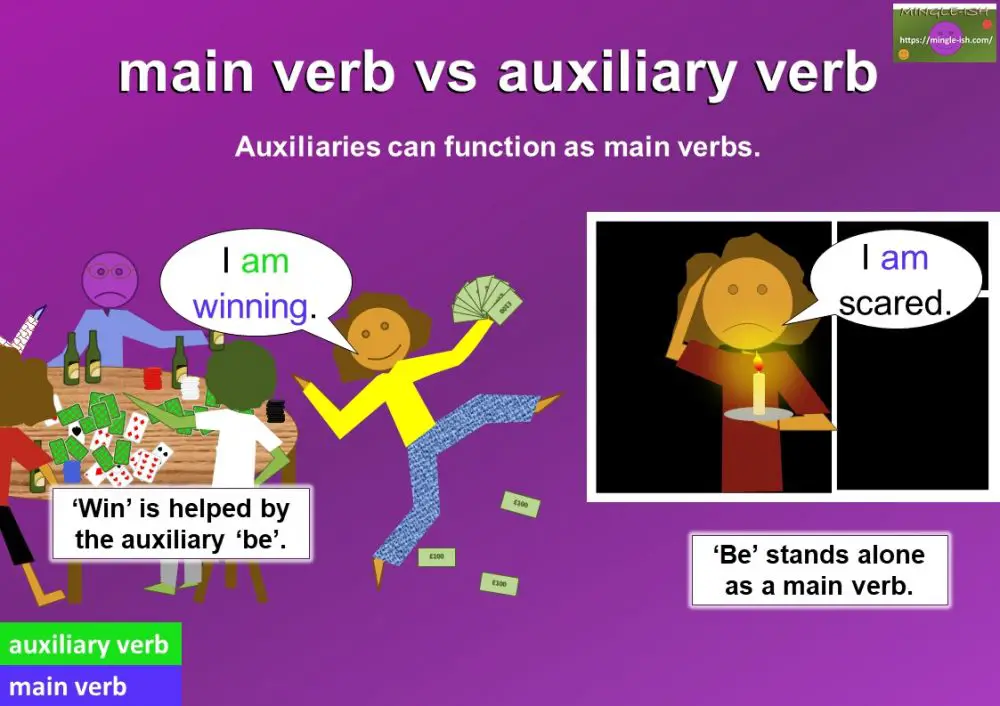

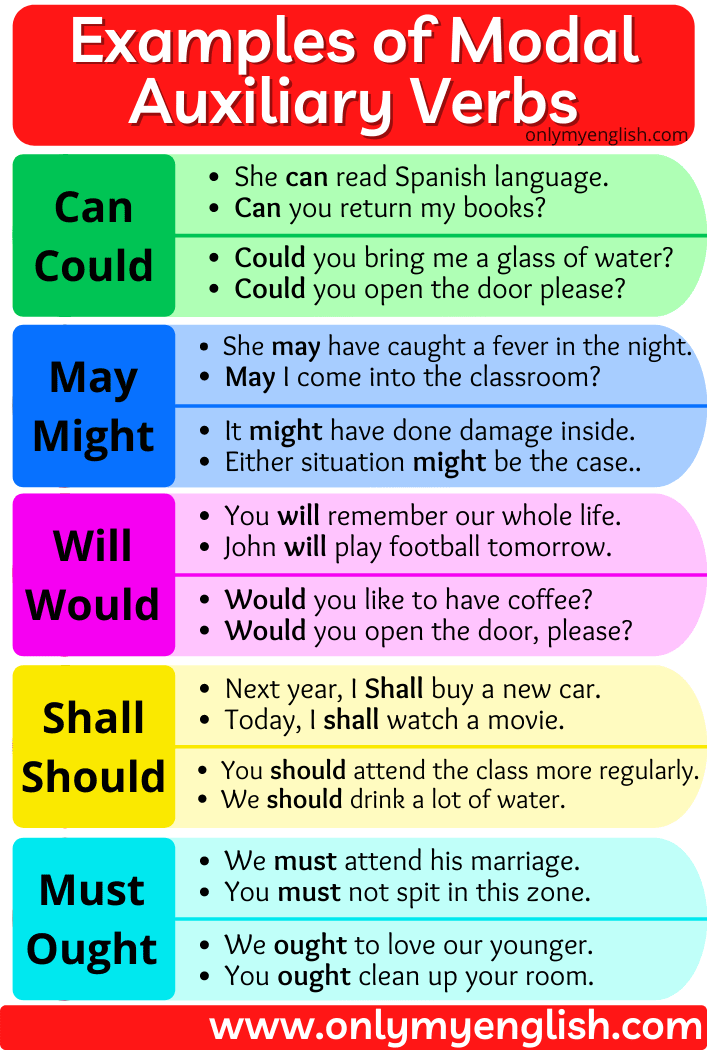
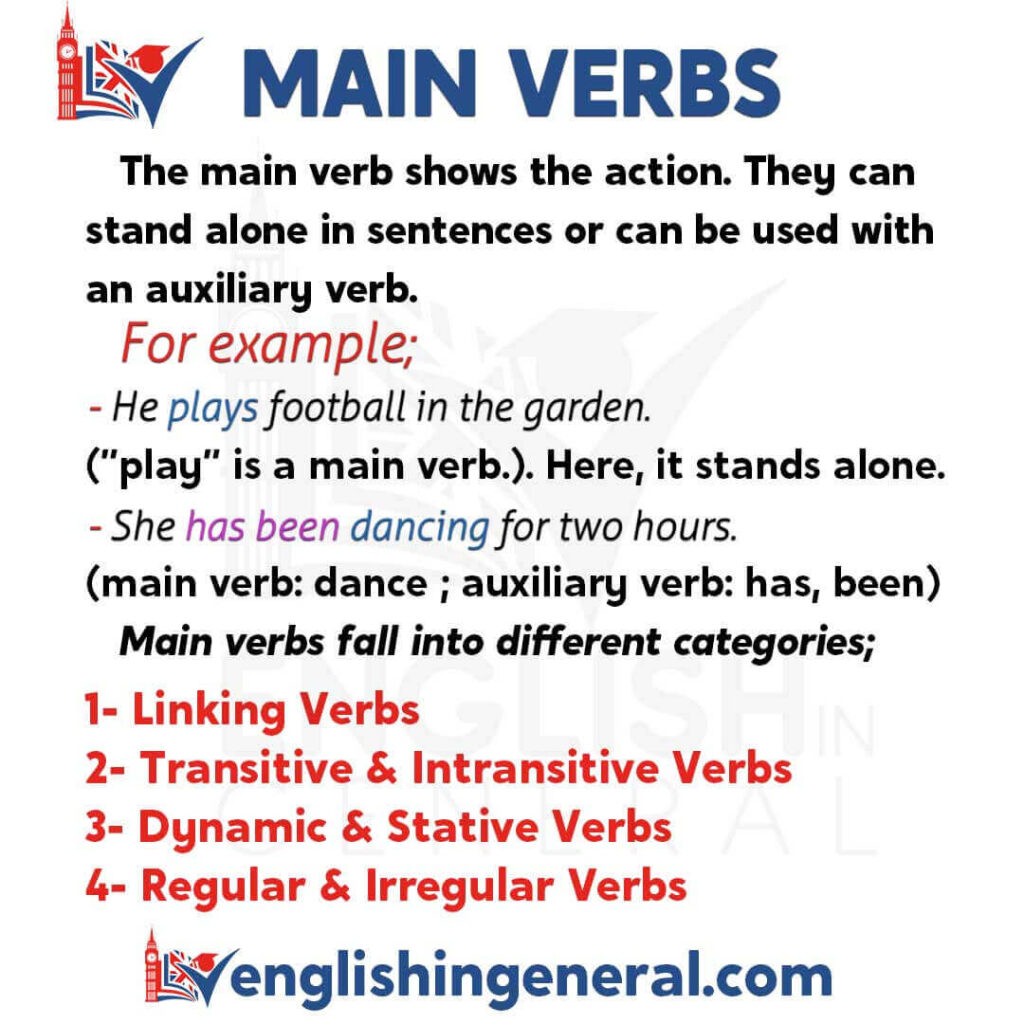
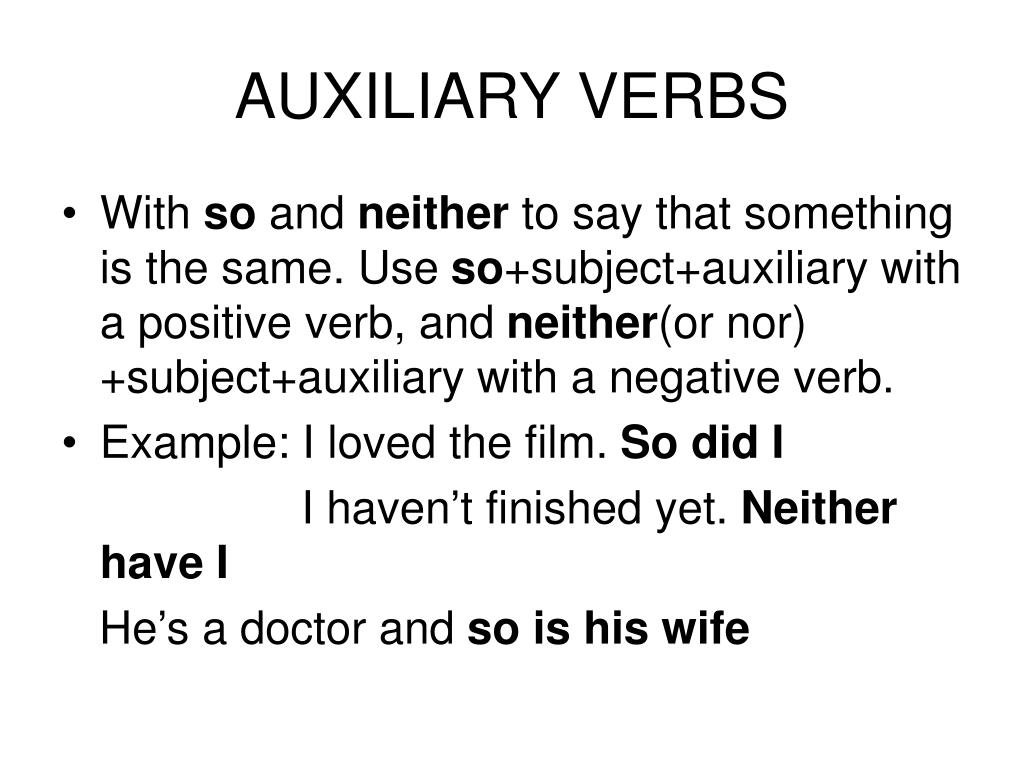


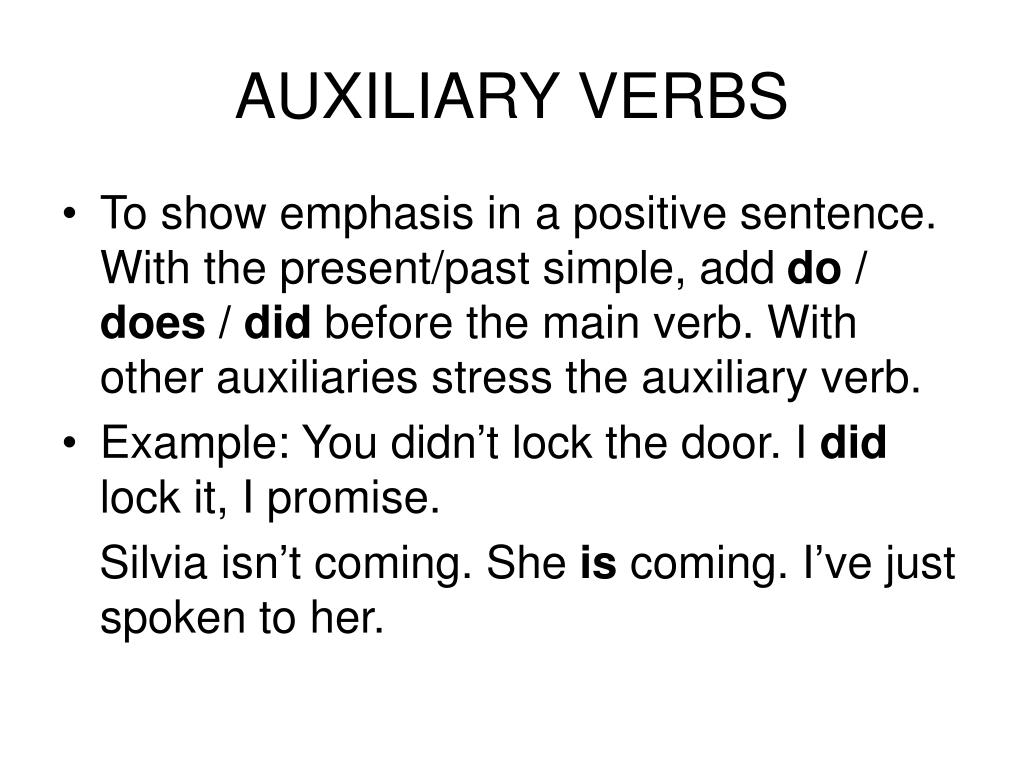







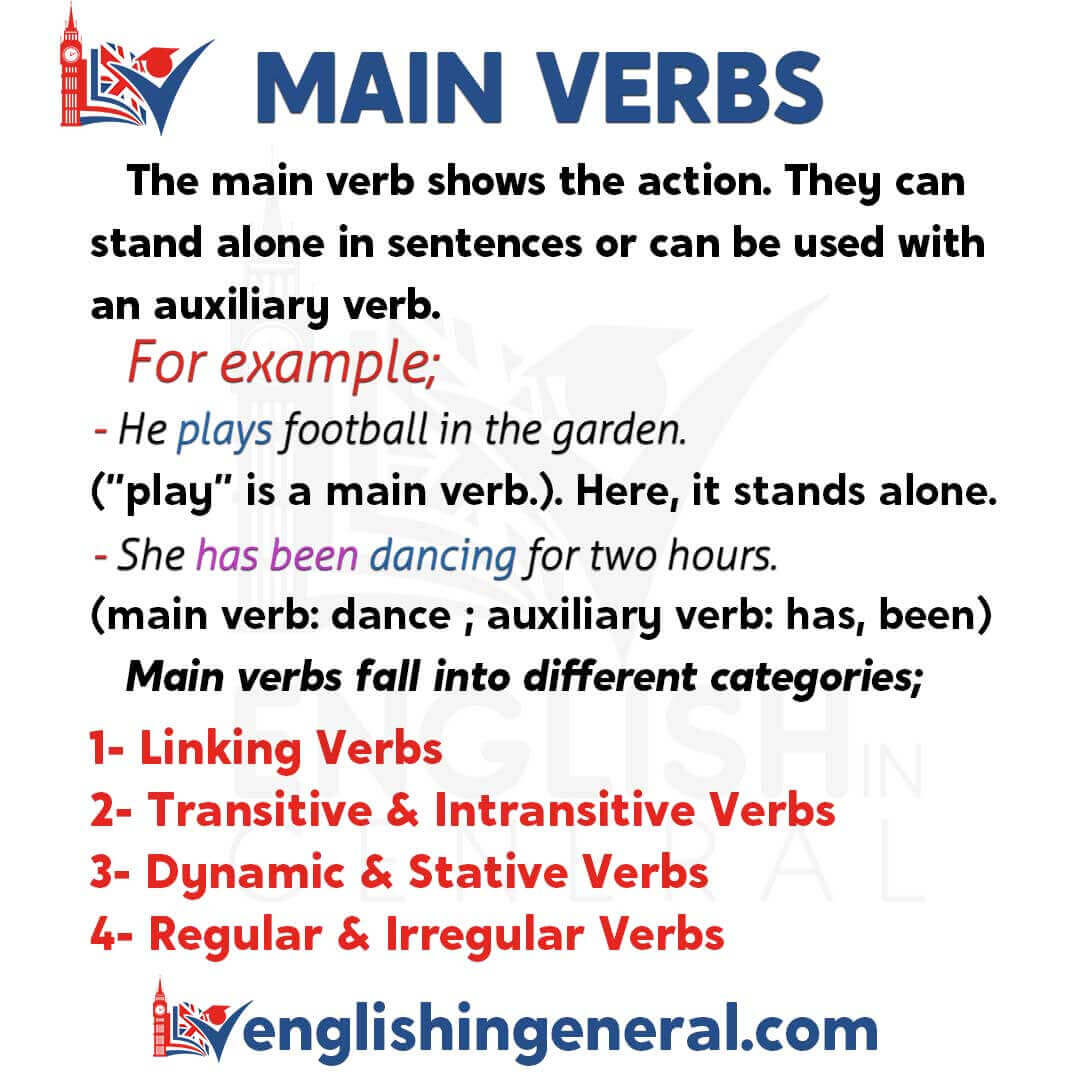
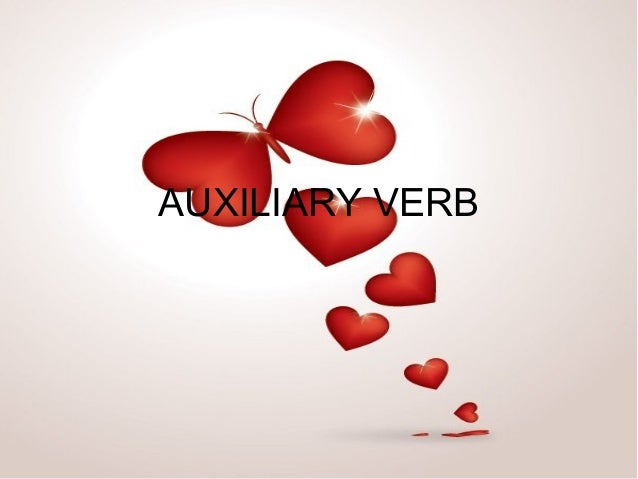

No comments:
Post a Comment
Note: Only a member of this blog may post a comment.